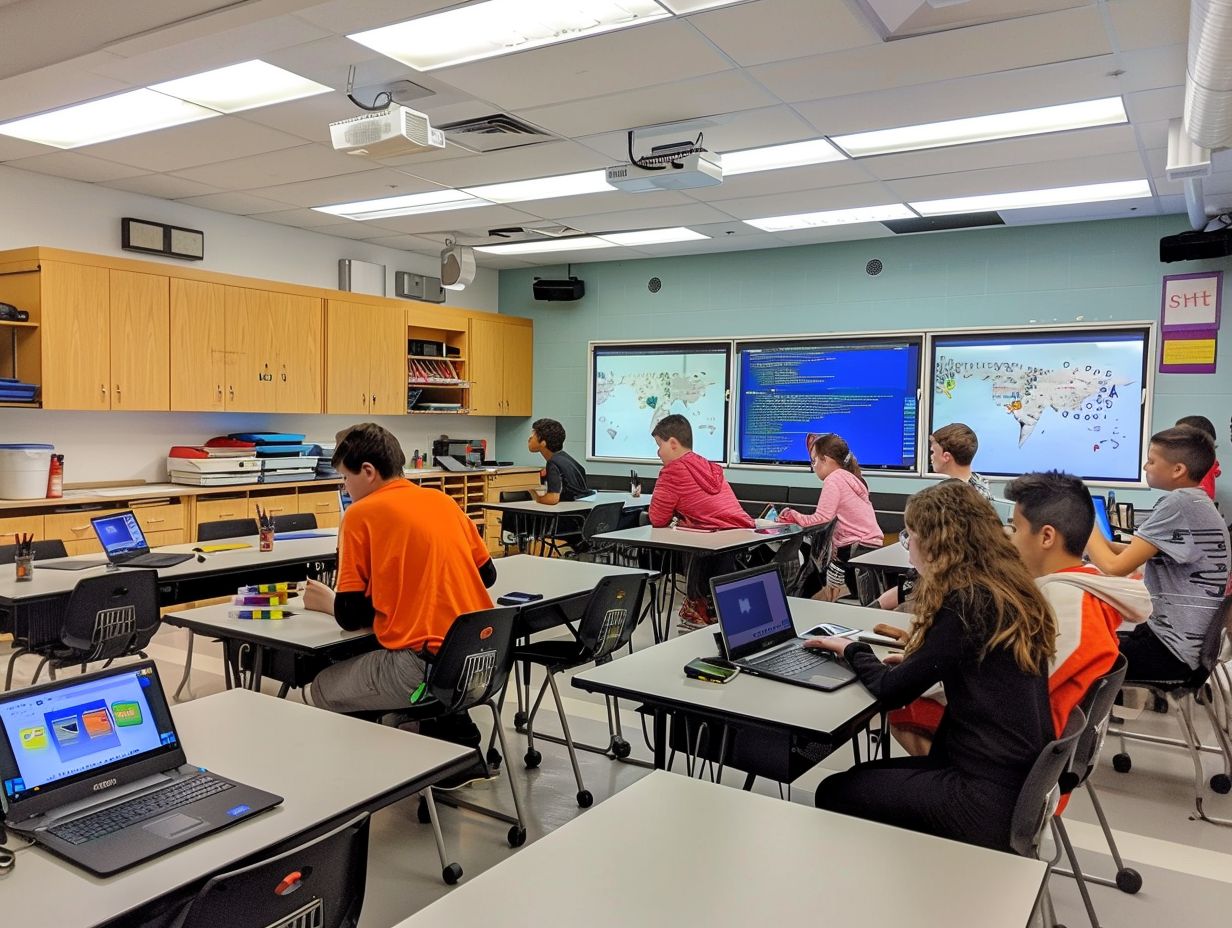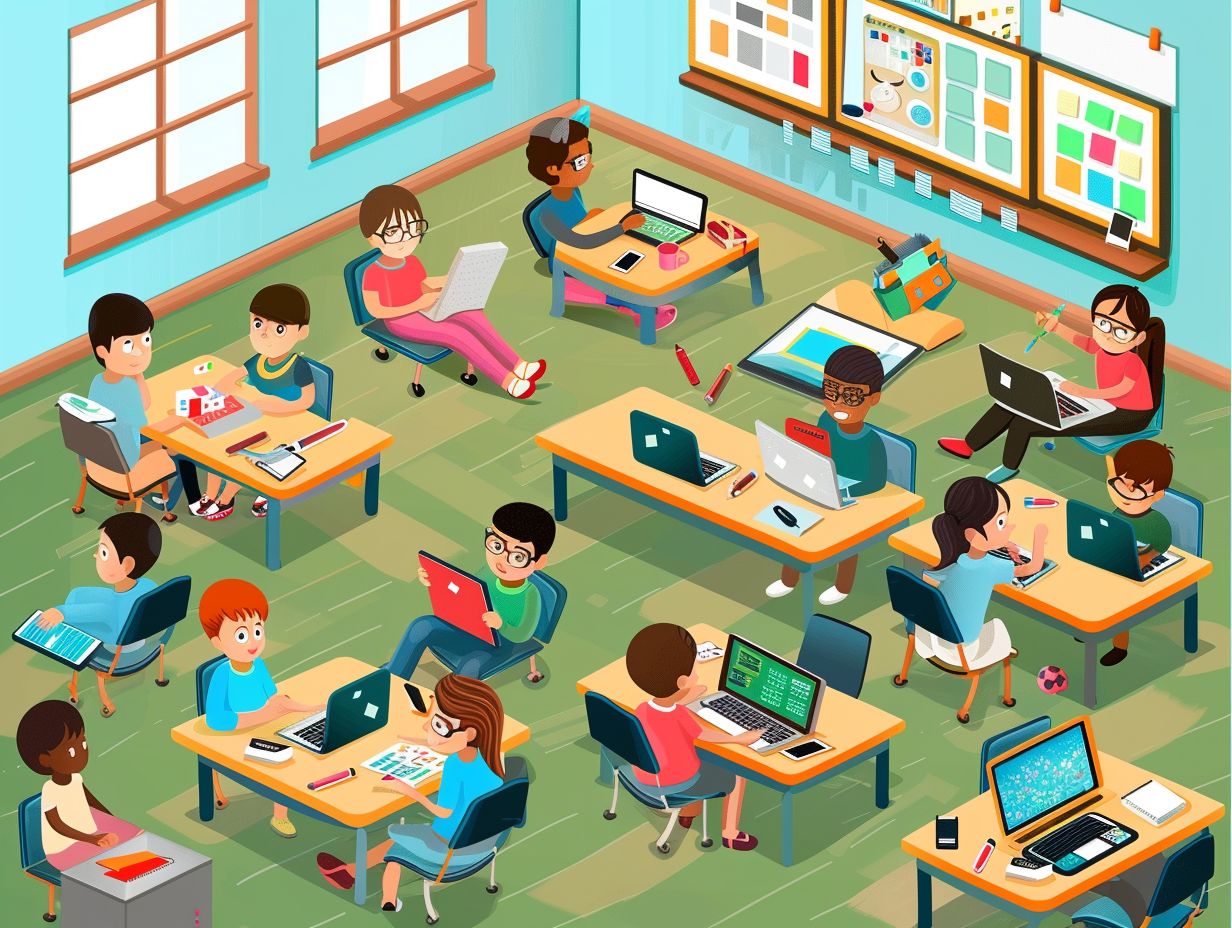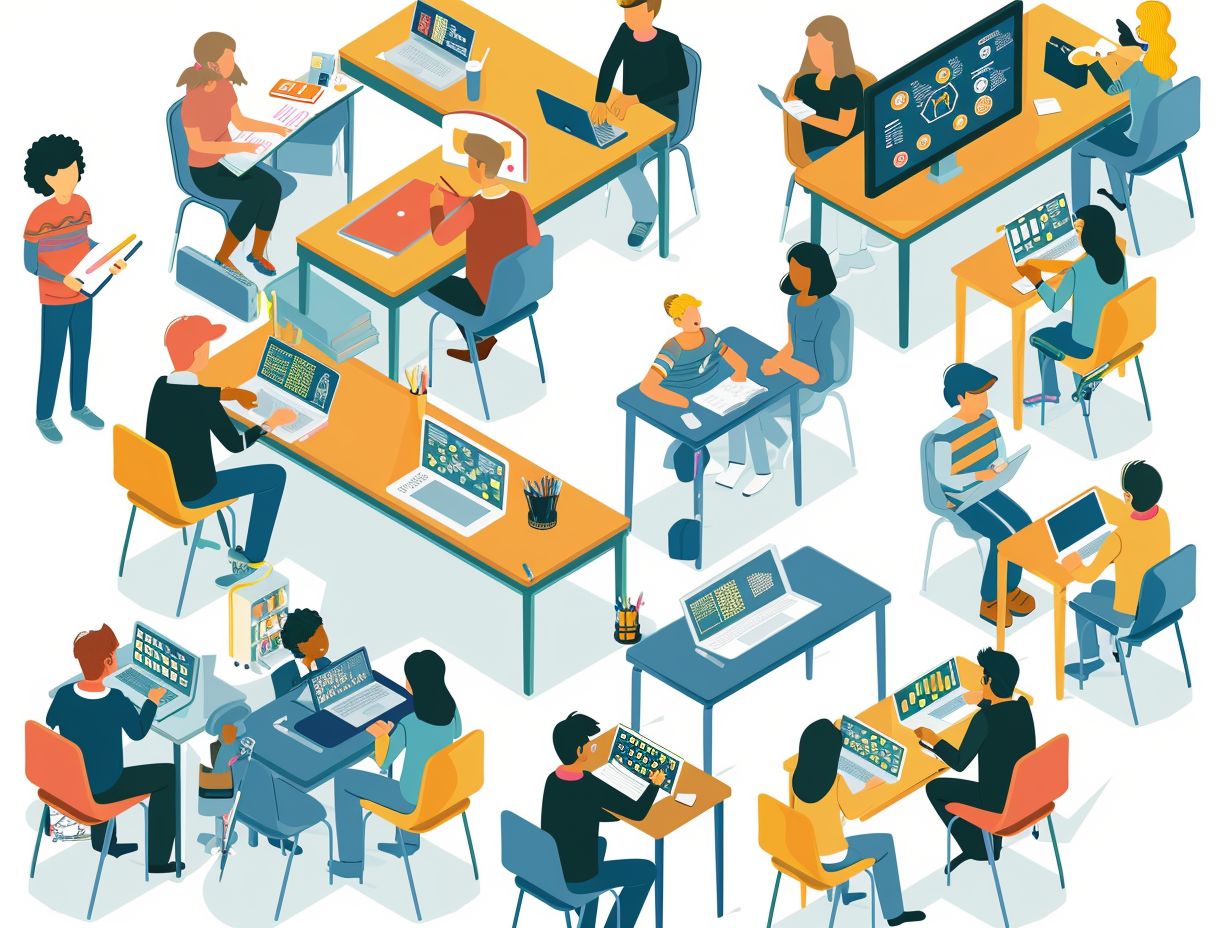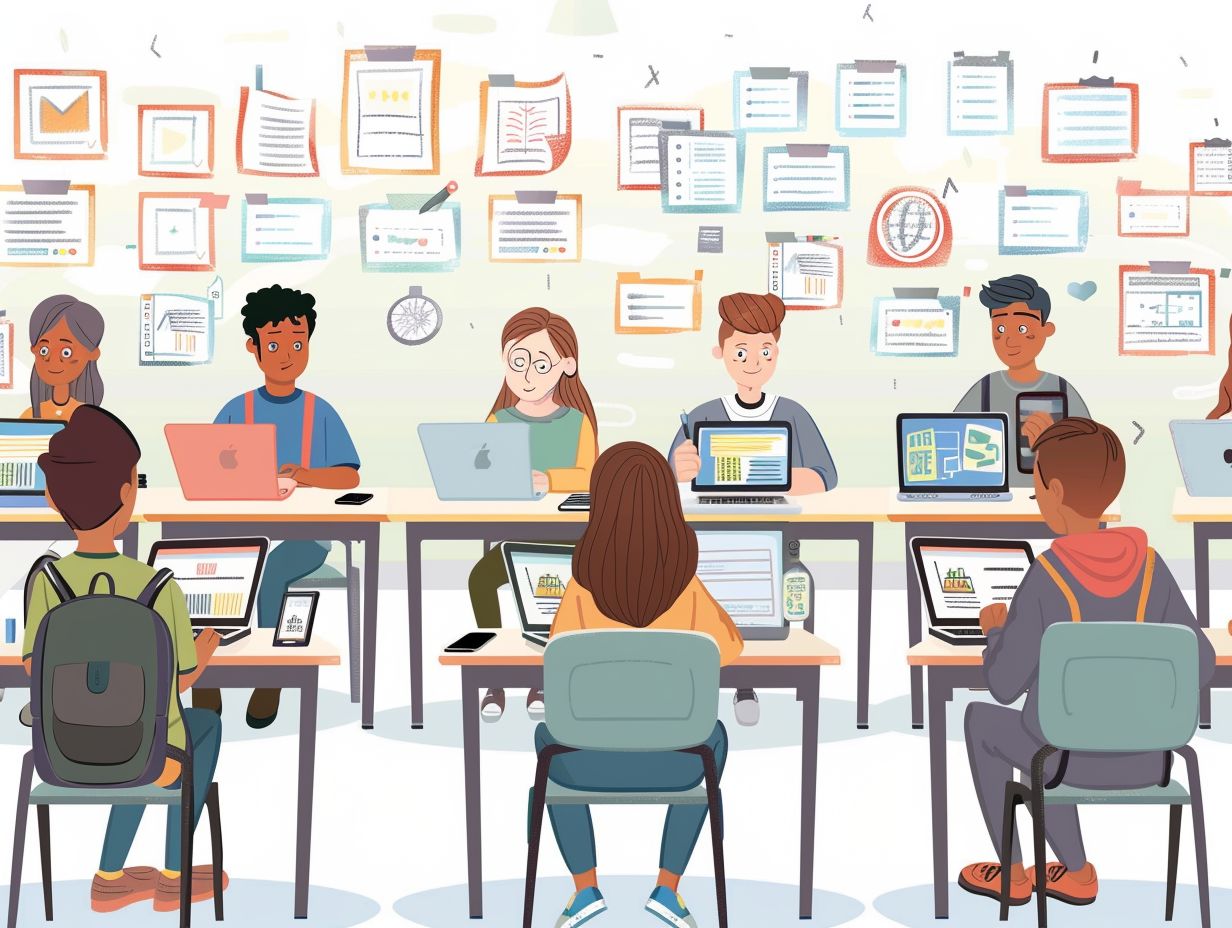Adaptive learning technologies are revolutionizing the field of technical education, offering you a personalized and engaging learning experience. The benefits of adaptive learning, such as improved student engagement and learning outcomes, will be explored. Additionally, different types of adaptive learning technologies, including intelligent tutoring systems and virtual reality, will be discussed. Insights on implementing adaptive learning in technical education and strategies to overcome challenges will be provided. Furthermore, predictions for the future of adaptive learning in the industry will be discussed.
Key Takeaways:

- Adaptive learning technologies enhance technical education by improving student engagement and learning outcomes.
- Personalized learning experience is a key benefit of adaptive learning, achieved through intelligent tutoring systems, adaptive learning management systems, and virtual/augmented reality.
- Successful implementation of adaptive learning in technical education requires following best practices, addressing challenges, and exploring the possibilities for future development.
What are Adaptive Learning Technologies?
You should be aware that Adaptive Learning Technologies utilize AI and personalized learning to enhance educational experiences for students. Companies like Google are making investments in the future of adaptive courseware to ensure equitable access to quality education. These innovative technologies are revolutionizing the traditional methods of learning by customizing educational content to meet the unique needs and learning pace of each individual student. Every Learner Everywhere stresses the importance of integrating research-based practices into these adaptive learning systems to optimize student engagement and outcomes. The incorporation of AI algorithms allows for a more personalized and interactive approach, enabling students to receive real-time feedback and adjust their learning strategies accordingly. This transition towards technology-enhanced education not only benefits students by promoting a deeper understanding of the subject matter but also enables educators to monitor progress and offer targeted support.
Benefits of Adaptive Learning in Technical Education
Implementing Adaptive Learning in Technical Education offers a myriad of benefits to students, teachers, and institutions. By utilizing machine learning algorithms, it improves student advancement and learning achievements.
Improved Student Engagement and Learning Outcomes
Adaptive learning technology plays a crucial role in enhancing student engagement and improving learning outcomes by delivering personalized lessons and assessments customized to individual student progress. This approach enables students to work at their own pace, honing in on areas where they require additional support while swiftly progressing through material they have mastered. Through the analysis of learning data, the system can pinpoint students’ strengths and weaknesses, facilitating educators in customizing instruction to address specific student needs. With real-time insights on student performance, progress tracking becomes more streamlined, allowing teachers to promptly intervene and tackle any obstacles. The interactive nature of adaptive learning platforms ensures that students stay actively engaged in their learning journey, resulting in heightened levels of motivation and enhanced skill acquisition.
Personalized Learning Experience
Utilizing adaptive learning technologies offers you a personalized educational experience, as the course content is tailored to meet your specific learning needs. The incorporation of artificial intelligence into the adaptive learning platform ensures that you benefit from a dynamic system that constantly evaluates your progress and adjusts the curriculum accordingly. This student-centric approach enhances comprehension and retention by delivering material in a manner that suits your individual learning preferences and pace. By providing customized learning paths, adaptive learning technology enables you to manage your education effectively, leading to improved academic achievements.
Types of Adaptive Learning Technologies
 Different types of adaptive learning technologies, such as Intelligent Tutoring Systems and Adaptive Learning Management Systems, utilize AI to provide you with personalized lessons, practice activities, and educational tools.
Different types of adaptive learning technologies, such as Intelligent Tutoring Systems and Adaptive Learning Management Systems, utilize AI to provide you with personalized lessons, practice activities, and educational tools.
Intelligent Tutoring Systems
Utilize Intelligent Tutoring Systems that leverage AI and machine learning to provide adaptive instruction and resources, offering you personalized learning experiences tailored to your unique needs. By leveraging the capabilities of artificial intelligence and sophisticated algorithms, these systems analyze your performance and learning patterns to deliver customized learning paths. Through continuous assessment and feedback, you receive individualized support and guidance, ensuring you grasp concepts effectively. The adaptive learning technology embedded in these systems adjusts its instructional strategies in real-time based on your progress, strengths, and areas needing improvement. This dynamic approach enhances engagement and retention, ultimately leading to improved academic outcomes for you as a learner.
Adaptive Learning Management Systems
Adaptive Learning Management Systems streamline the implementation of adaptive learning technology in educational settings by offering research-based software solutions that optimize student learning experiences. These systems provide a variety of features that support faculty adoption of adaptive learning tools, facilitating the incorporation of personalized learning into curricula. By leveraging data analytics and machine learning algorithms, these systems can customize instruction to meet the unique needs of each student, fostering equitable access to education. The smooth integration of adaptive learning technology through these systems guarantees that students receive tailored support and resources to improve their academic performance.
Virtual and Augmented Reality
Virtual and Augmented Reality technologies hold immense potential in shaping the future of education, offering interactive lessons, immersive quizzes, and enhanced pass rates through engaging learning experiences. These cutting-edge technologies provide you, as a student, with an opportunity to immerse yourself in virtual environments, making learning more interactive and memorable. By incorporating adaptive learning resources, VR and AR can cater to your individual learning styles, thereby improving your engagement and comprehension. The integration of interactive tools within these platforms enables educators to create dynamic and personalized learning experiences for you, ultimately leading to higher pass rates and improved performance. Through the use of VR and AR, education is transformed into a more interactive and engaging journey for learners of all ages.
Implementing Adaptive Learning in Technical Education
Implementing Adaptive Learning in Technical Education necessitates the adoption of best practices and strategies that prioritize faculty training, student engagement, and ensuring equitable access to adaptive courseware.
Best Practices and Strategies
 Implementing adaptive learning in technical education requires adopting best practices and strategies. You need to focus on faculty training, student-centered approaches, and integrating adaptive courseware to improve the overall learning experience. Developing a comprehensive faculty development program is essential to ensure educators can effectively utilize technology integration. This involves providing training sessions on incorporating adaptive courseware into teaching methods and promoting ongoing professional development. Engaging students actively in the learning process through interactive content and personalized learning paths is key to enhancing student success rates. By combining robust faculty support with student engagement strategies, you can cultivate a dynamic educational environment that promotes collaboration and knowledge retention.
Implementing adaptive learning in technical education requires adopting best practices and strategies. You need to focus on faculty training, student-centered approaches, and integrating adaptive courseware to improve the overall learning experience. Developing a comprehensive faculty development program is essential to ensure educators can effectively utilize technology integration. This involves providing training sessions on incorporating adaptive courseware into teaching methods and promoting ongoing professional development. Engaging students actively in the learning process through interactive content and personalized learning paths is key to enhancing student success rates. By combining robust faculty support with student engagement strategies, you can cultivate a dynamic educational environment that promotes collaboration and knowledge retention.
Challenges and Solutions
Addressing the challenges in implementing adaptive learning technologies requires innovative solutions that cater to student needs, faculty support, and effective courseware integration.
Addressing Common Roadblocks
To overcome the roadblocks in adaptive learning implementation, you need to focus on faculty training, student support, and creating equitable access to adaptive courseware for a successful educational future. This involves recognizing the crucial role of technology integration in modern academic settings, where personalized learning experiences enhance student outcomes and prepare them for future readiness. By aligning faculty development programs with pedagogical approaches that embrace adaptive technologies, you can feel enableed to guide students through tailored learning paths. Similarly, prioritizing support structures that address diverse student needs ensures equitable access to digital tools, thus leveling the playing field for all learners in their pursuit of knowledge and skill development.
The Future of Adaptive Learning in Technical Education
The future of adaptive learning in technical education offers promising predictions and possibilities for you, your faculty, and your institution. AI-driven courseware is revolutionizing the educational landscape, shaping a new era of personalized and efficient learning experiences.
Predictions and Possibilities
The future of adaptive learning technology in technical education envisions transformative possibilities for you, faculty members, and the education sector through innovative implementations and enhanced learning experiences. This integration of advanced technology is poised to revolutionize traditional teaching methods, allowing you to access personalized learning paths tailored to your individual needs and learning styles. As technology continues to evolve, adaptive learning tools are expected to become more sophisticated in analyzing your data and providing targeted interventions. This shift towards personalized education is not only enhancing student success rates but also reshaping the role of faculty members. Through ongoing professional development initiatives, educators are being equipped with the skills to effectively utilize these tools and create dynamic, engaging learning environments that foster future readiness in a rapidly changing educational landscape.
Frequently Asked Questions

What are Adaptive Learning Technologies in Technical Education?
Adaptive Learning Technologies in Technical Education are tools and systems that use data and algorithms to personalize learning experiences for students in technical education, allowing them to progress at their own pace and in a way that suits their learning style.
How do Adaptive Learning Technologies work in Technical Education?
Adaptive Learning Technologies use data and algorithms to assess students’ knowledge and skills, and then adapt the learning content and pace to match their individual needs. This allows for a more personalized and effective learning experience.
What are the benefits of using Adaptive Learning Technologies in Technical Education?
Some benefits of using Adaptive Learning Technologies include improved student engagement, increased retention rates, and more efficient use of teachers’ time. It also allows for a more customized learning experience for each student, leading to better understanding and mastery of technical concepts.
Are there any downsides to using Adaptive Learning Technologies in Technical Education?
While there are many benefits, some potential downsides to using Adaptive Learning Technologies include initial setup and training costs, as well as concerns about data privacy and potential dependence on technology for learning.
How do Adaptive Learning Technologies benefit students with different learning styles?
Adaptive Learning Technologies are designed to cater to different learning styles, allowing students to learn through a variety of methods such as visual, auditory, or hands-on activities. This can help students who may struggle with traditional teaching methods and improve their overall learning experience.
Is there evidence that Adaptive Learning Technologies improve learning outcomes in technical education?
Yes, there have been studies that show the positive impact of Adaptive Learning Technologies on learning outcomes in technical education. These studies have found that students who use these technologies have higher test scores and better overall understanding and retention of technical concepts compared to those who do not use them.
